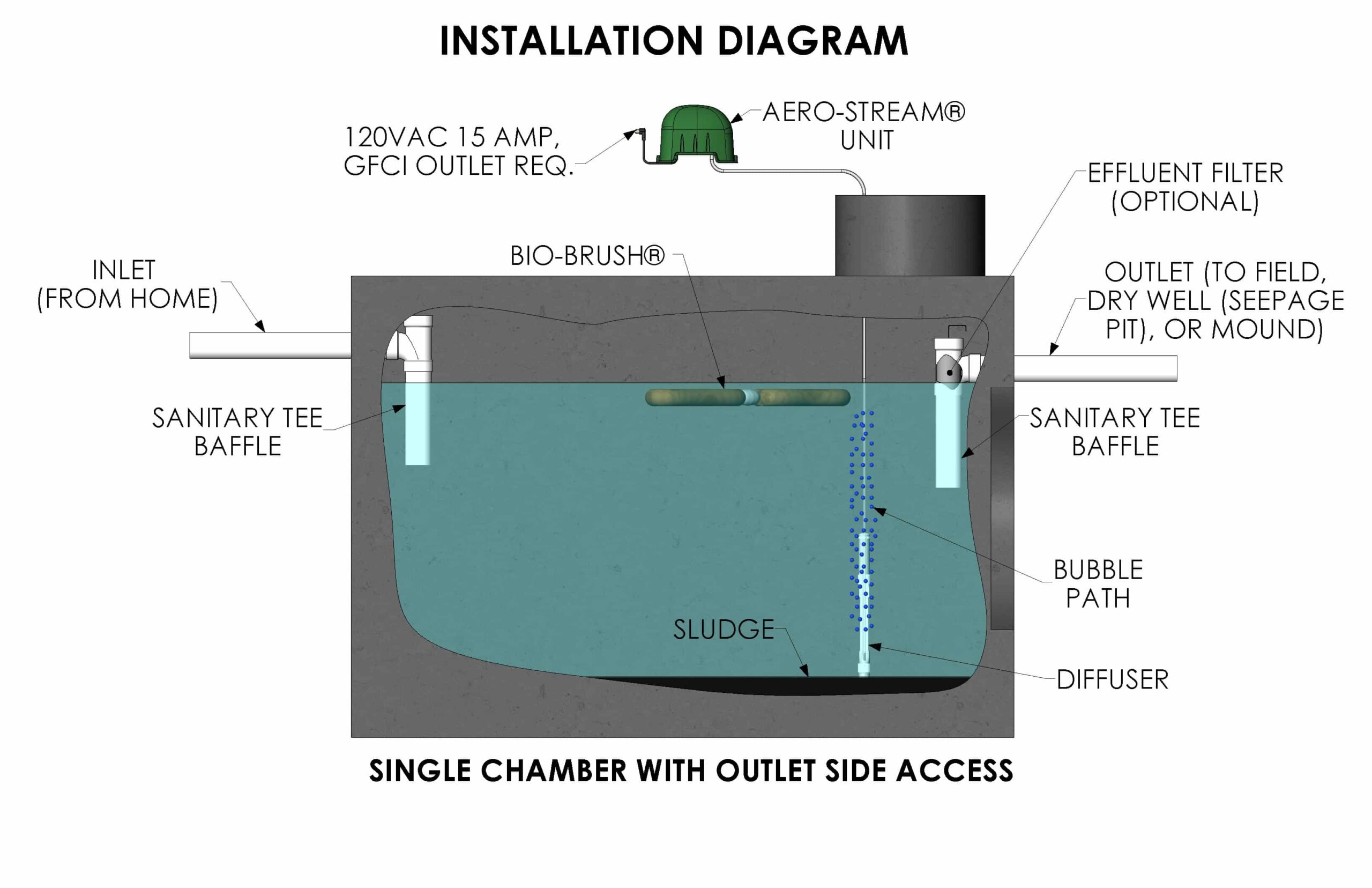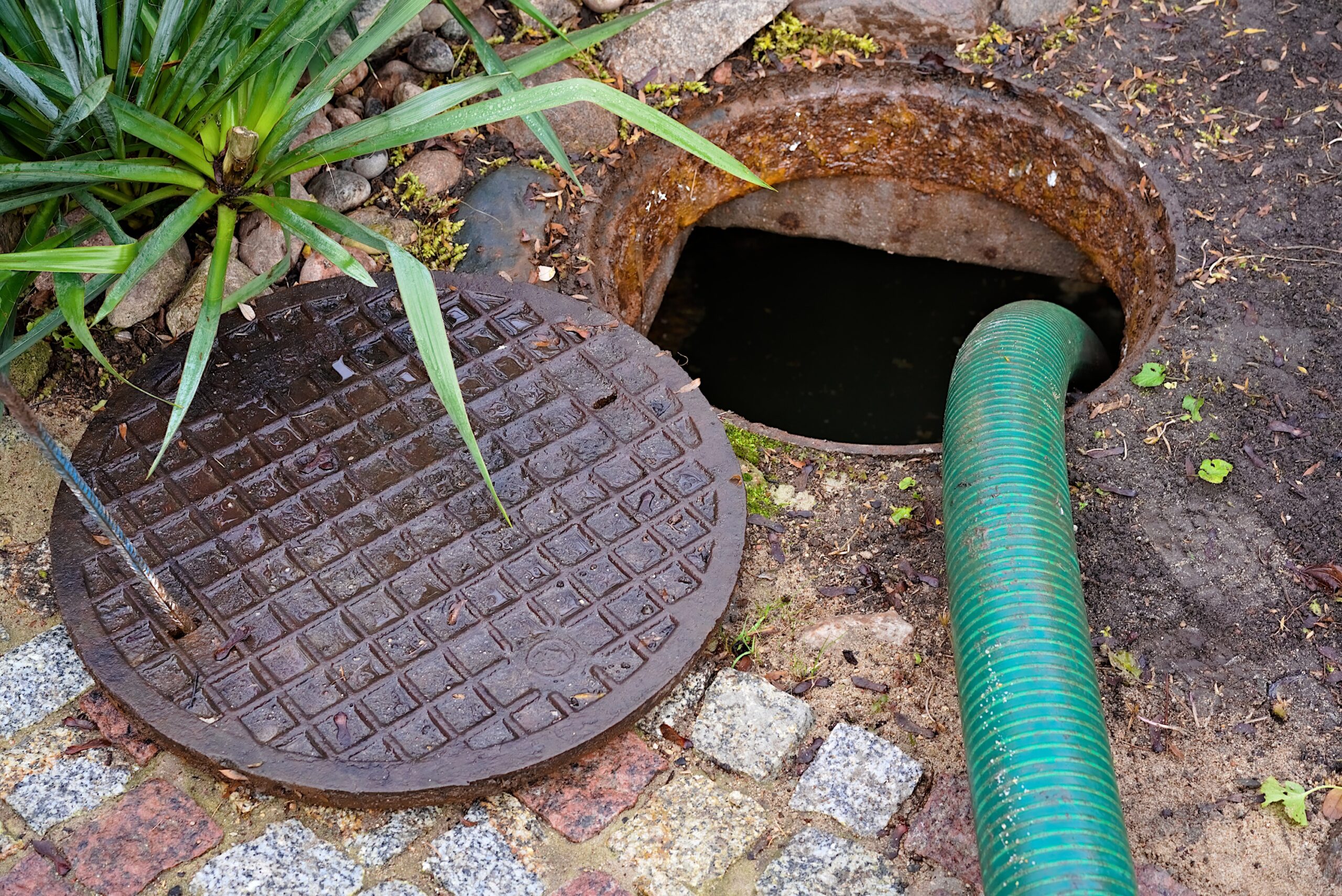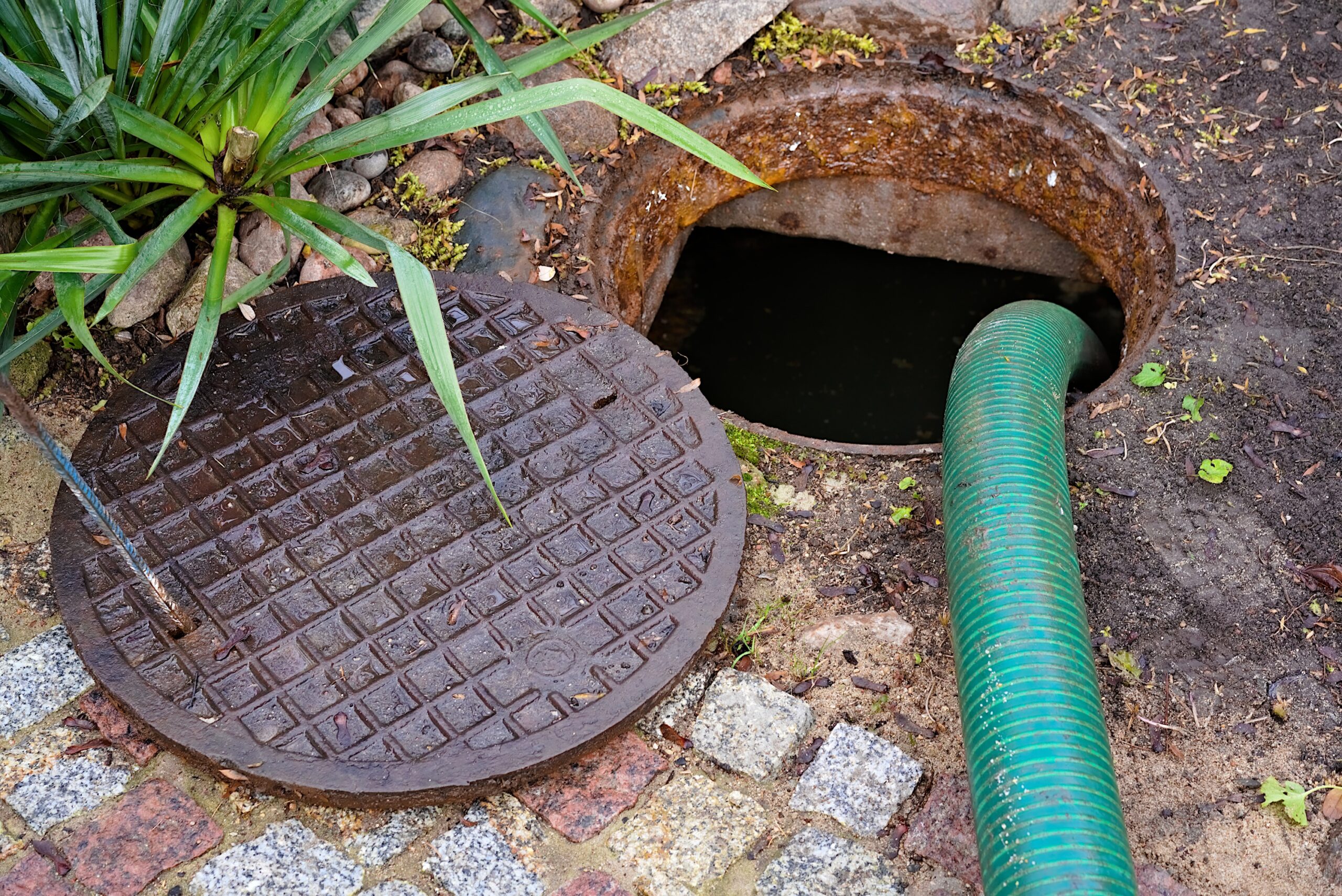There are many septic system best practices that homeowners should understand and implement to ensure their system performs at peak levels for as long as possible. Many of these are logical actions and need not be explained. The reason to implement others, on the other hand, is not so obvious. In this blog, we look at two best practices that fall into this category:
- Minimize the amount of organic material that is washed down the kitchen drain.
- Avoid using garbage disposals.
There are a couple of reasons why these are important best practices to implement. First, putting organic material that has not been digested into the septic system introduces additional nutrients without any additional bacteria. Food scraps washed directly from dishes and cooking equipment and utensils into the septic system contain very little bacteria.
Digested food, on the other hand, is like a self sustaining environmental kit, packaged complete with bacteria and nutrients. Human feces and intestinal tracts are teaming with bacteria and it is natural and predictable that some of these pass into the septic system with the digested organic matter. All that is needed for these bacteria to break down the organic matter further is time (note: aerobic bacteria will break down the organic matter far faster than the anaerobic matter).
Municipal waste treatment systems are better equipped to deal with organic material from the kitchen sink. Their waste treatment processes are designed to remove this material from the system; it is done readily and efficiently on a continual basis. Septic systems, on the other hand, can be overwhelmed by this bacteria free organic material. If too much is introduced, it will not be broken down. In the best case, the septic tank will need to be pumped more frequently than normal. In the worst case, this material will make its way out to the drainfield, clogging it and preventing water from passing back to the water table.
A second reason these best practices should be implemented is that the fats, oils and grease will wreak havoc on the septic tank and pipes. When eaten and digested by humans, fats, oils and grease are essentially filtered out by the human body (for better or worse). Introduced in “raw” form via the kitchen sink, however, they can build up in pipes, causing blockages that have to be mechanically removed.
A far better home for undigested food scraps is either the waste can or a compost pile. Putting them in your septic system will shorten the life of your system.











